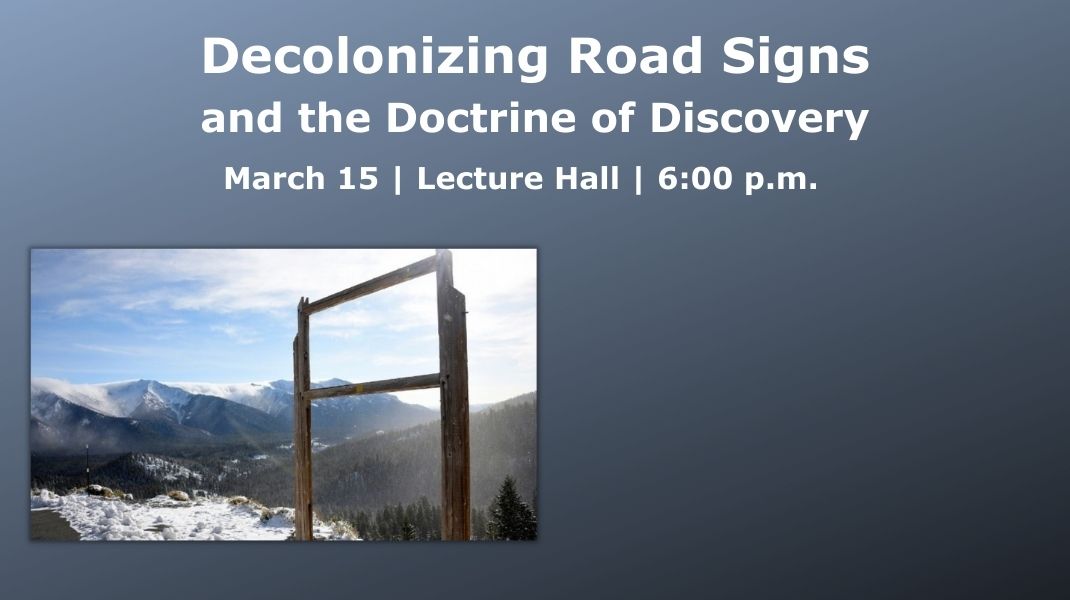. . .and the Doctrine of Discovery with Tony Tekaroniake Evans
In-Person Event
Tuesday, March 15 | Lecture Hall | 6:00 p.m.
Register here.
Join Tony Tekaroniake Evans for an in-depth investigation of his recent story in High Country News titled “Decolonizing Idaho Road Signs,” about efforts to redress the erasure of Indigenous history and culture on highway markers in Idaho and elsewhere in the U.S. Described as “decolonization where the rubber hits the road,” this report went nationwide on NPR’s Here and Now and was later expanded in coverage by the Smithsonian Magazine and other publications.
Evans will introduce us to the celebrated career of Alexander Ross, whose legacy on a road sign at Galena Summit north of Ketchum has long held that he “discovered” the Sawtooth Valley in 1822. Much to the contrary, Native peoples have passed this way for millennia and continue to do so, taking part in ongoing conservation efforts in the territory of the Shoshone-Bannock people.
Drawing on personal experience, historical research and breaking news stories, Evans will tell the story of the centuries-old legal framework known as the Christian Doctrine of Discovery, how it disenfranchised Indigenous peoples of titles to land during periods of genocide and assimilation and led to common assumption that Indians would no longer play a role in the history of our nation. Times have changed. Indigenous culture and lifeways are being rediscovered by the dominant culture and raised in significance by the Biden administration at a time when non-profits, government officials and citizens are looking for ways to view the land in a more sustainable and responsible manner.
Photo: A sign north of Sun Valley has for decades announced to passersby that fur trapper Alexander ross ‘discovered’ Galena Summit. A movement is under way to return Native perspectives and historical accuracy to our roadside history. Courtesy of Roland Lane.

